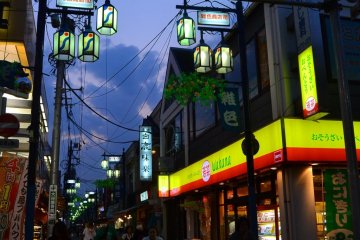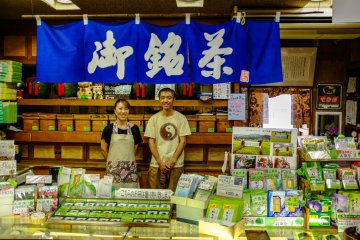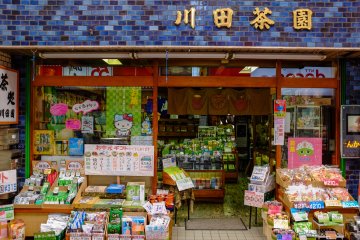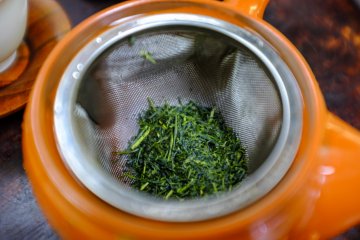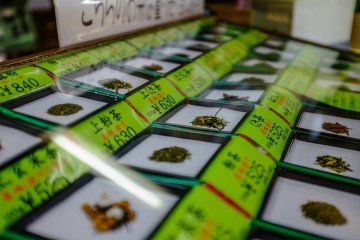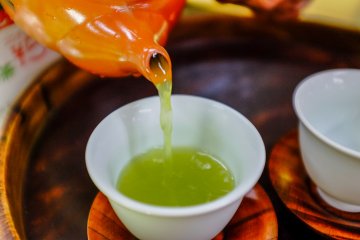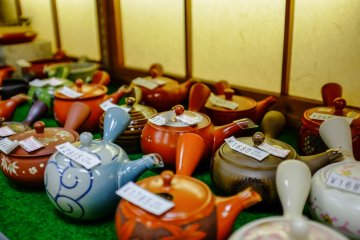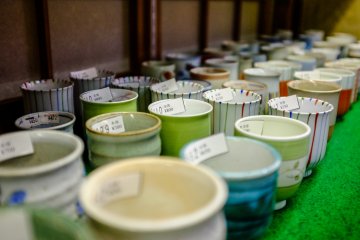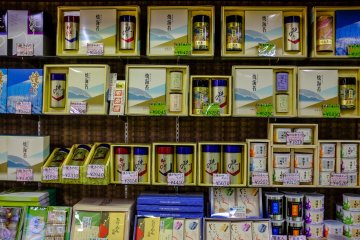Kawata Chaen is a charming little Japanese tea shop located in the Zoshiki Arcade, a 1 minute walk from Oakhouse Kamata. I had passed this shop many times but never took the time to have a look, and with some time up my sleeve decided to do exactly that. As I entered the store, I was enthusiastically greeted by Kawata-san and his wife, who without questions, promptly served a small glass of cold green tea.
As I am admittedly not a tea expert, I was curious in the differences between each tea, and what makes a good Japanese tea so special. Kawata-san informed me that his shop had been operating in the family for over 60 years, specializing in only the finest teas from Shizuoka prefecture. His family sources their tea from the Kakegawa and Kanaya regions in Shizuoka. Kakegawa, he informs me, is known to produce the most famous tea in Shizuoka, producing a deeper taste than most teas, Kanaya tea on the other hand, produces a more fragrant tea. Kawata-san believes that mixing the two produce a beautiful deep tasting yet fragrant green tea, the type his shop specializes in.
Kawata-san continued to explain that the majority of his tea is sourced from Shizuoka, however he also carries some speciality Kyoto and Kyushu teas to suit everybody's needs. He explained the different teas he stocks, showing me the difference in texture, color and the way each tea is prepared. He then insisted I try his specialty Kukicha tea, which has a refreshing aroma and light flavor, and proceeded to serve it in an authentic Kyusu teapot and cup. The key to brewing tea to perfection is the correct water temperature he tells me, explaining that Kukicha tea is best brewed at temperatures around 70-80 degrees celsius to ensure perfection. And perfection it was. We sat and drank tea for about 30 minutes, chatting about everything from tea to travel.
He also explained the different Ryokucha, Matcha, Konacha, Hojicha and Genmaicha teas, all displayed in a glass top cabinet, explaining the subtle differences between each which he sells at very reasonable prices per 100g.
Kawata-san speaks reasonably good English thanks to his extensive travels through China, Russia, Europe and Africa in his younger days, so don’t be afraid to pop in and say hello and be welcomed. The shop also stocks an impressive range of beautifully crafted Kyusu teapots and cups. Along with traditional Japanese tea containers, accessories and a cheeky little selection of jelly, sweet bean and green tea sweets. Another specialty of Kawata Chaen is traditional Ochugen gifts, traditionally given during July and August period. The gift sets were immaculately packaged and contained the finest quality Nori (seaweed) and his personally recommended teas to suit.




